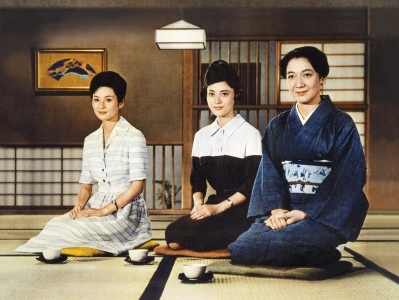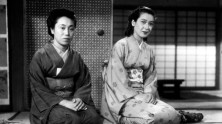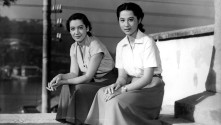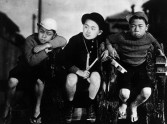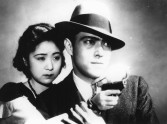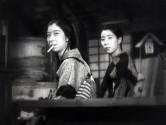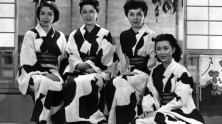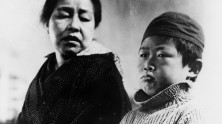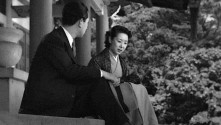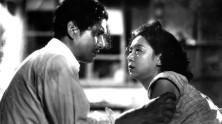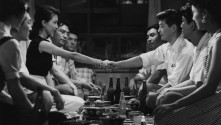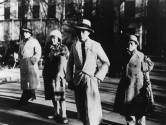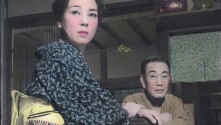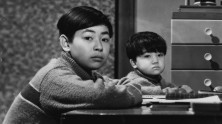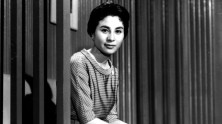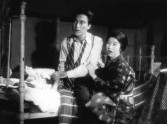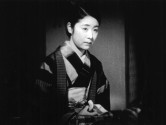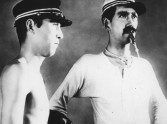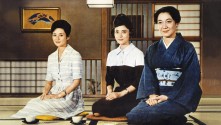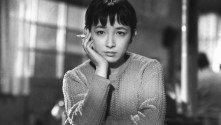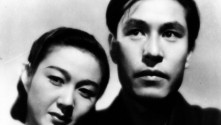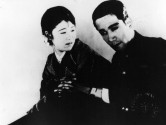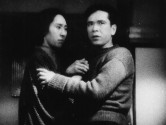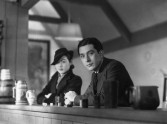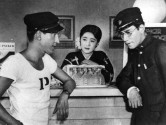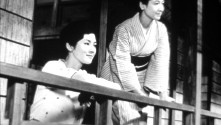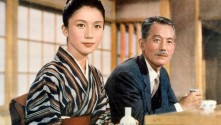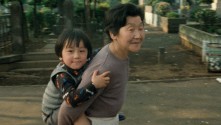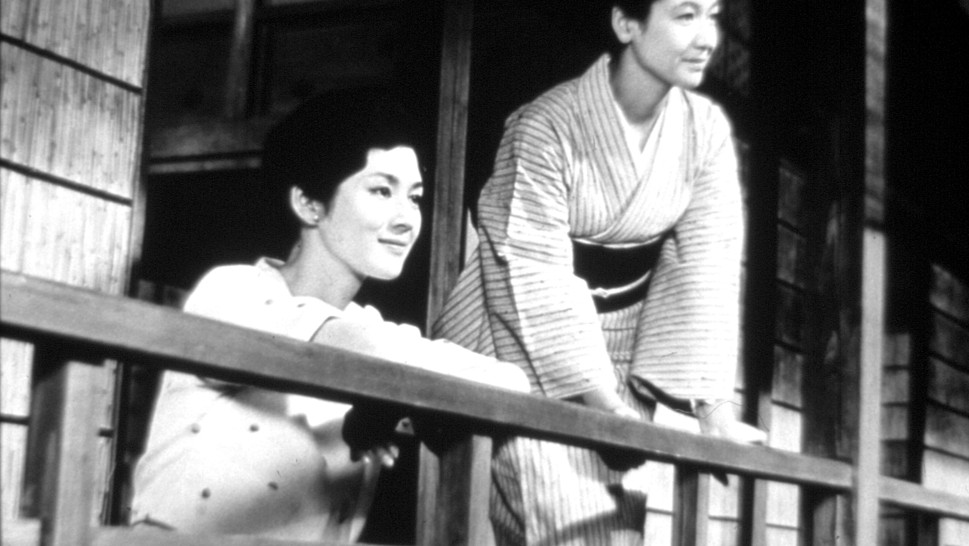
The End of Summer
(Kohayagawa ke no aki)
With Nakamura Ganjiro II, Hara Setsuko, Tsukasa Yoko.
Japan, 1961, 35mm, color, 103 min.
Japanese with English subtitles.
Print source: Janus Films
The End of Summer is an affirmation of the seemingly inscrutable decisions one makes for happiness in a short lifetime. Three daughters—the married Fumiko (Aratama Michiyo), the widowed Akiko (Hara Setsuko), and the unmarried Noriko (Tsukasa Yoko)—discover that their elderly father Manbei (Nakamura Ganjiro) has been visiting his old mistress Tsune (Naniwa Chieko). The carnal nature of their tryst is made obvious by glistening skin and bottles, and the film’s lush score by Mayuzumi Toshiro. The End of Summer represents an apex of self-reflexivity, mirroring the nostalgia that draws Manbei to Tsune: the use of the name Noriko for a character urged to enter an arranged marriage references Early Summer; the casting of Hara Setsuko as a widowed daughter-in-law recalls Tokyo Story; the casting of Nakamura Ganjiro as a womanizing father echoes Floating Weeds. Ozu brings these familiar figures together for a candid confrontation with death, eclipsing the reputational concerns of his earlier work with an existential question: what does it mean to be happy—not later, but right now? Only as life presents chances for Akiko and Noriko to make bold and honest decisions do the actions of the old man start to make more sense, and in retrospect he seems to be the most modern of them all.
